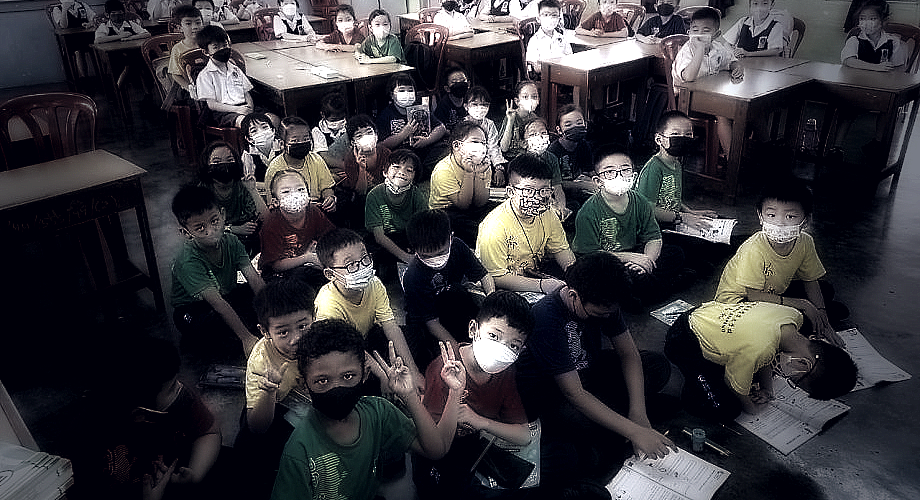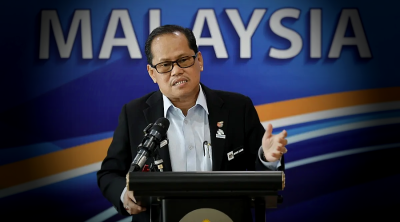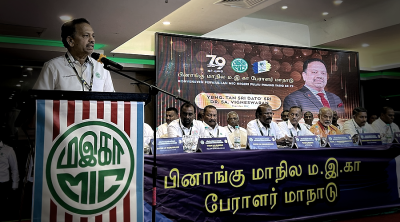
Teacher shortage has been a perennial problem for Chinese primary schools in the country, and this problem has remained unresolved for decades.
While we have seen different faces taking charge at the education ministry, this problem is still stubbornly lingering.
Nothing comes as a bigger shock to the country’s Chinese educationists than the latest development in this issue, as they are caught totally perplexed.
This time, Education Minister Fadhlina Sidek says there is a surplus of teachers at vernacular schools, and as such, there is no need for additional teacher training.
Fadhlina pointed out recently that her ministry had initiated a redesignation program for vernacular school teachers earlier this year, and she expected the number of teachers for Chinese and Tamil primary schools to be sufficient over the next five years from 2024 to 2029.
As such, she said there was no need to train more Chinese and Tamil language teachers.
Dong Jiao Zong apparently disagrees.
The most scientific way of doing things is to base the decisions on statistics. The thing is, the statistics must reflect the reality, so that the decision-makers can grasp a clearer picture of the actual situation.
Unfortunately, the education ministry’s “redesignation” program has failed to truthfully reflect the reality of Chinese teacher shortage at SJKCs!
According to Dong Jiao Zong, the methodology adopted in the ministry’s statistics was flawed, as it separated the teachers in accordance with the subjects they teach. As a result, the statistics showed a surplus of Chinese language teachers at SJKCs.
There’s nothing the capable education ministry cannot handle so long as accurate numbers are obtained.
Deputy Education Minister Lim Hui Ying admitted that the methodology currently used in the ministry’s statistics was unable to precisely reflect the reality of Chinese language teacher shortage at SJKCs.
If this is the case, why does the ministry still insist to decide whether training of more Chinese and Tamil language teachers is necessary based on the data provided by a flawed system?
The minister asserts that there is no teacher shortage based on the data provided, but in reality SJKCs are constantly facing the dilemma of teacher shortage. Should we believe in the cold numbers, or real-life evidences presented before us?
The minister’s conclusion that there is no need for more Chinese and Tamil teachers over the next five years is hardly convincing and is extremely irrational.
Bear in mind that there are teachers retiring every year (including those applying to retire early), while the training of teachers typically takes years. If the ministry does not plan ahead of time, there might not be enough teachers taking over once senior teachers leave the profession. This will invariably impact the students’ learning progress.
Well, the education ministry can always claim that the decisions have been made based on the data collected, but the thing is, such data do not reflect the actual situation!
Deputy minister Lim has repeatedly assured that she would continue to fight for the training of more Chinese and Tamil teachers every year. While we applaud the deputy minister’s effort, more importantly the issue must be tackled from the root for lasting effects.
How difficult is it to get the education ministry to understand the actual situation at SJKCs? It all comes down to communication. If both sides are willing to sit down and talk, everything can get solved slowly, and the current disagreement would have been averted.
There is nothing the capable education ministry cannot handle, so long as accurate numbers are obtained.
Perhaps, it is the Little Napoleons that mess up things, but as leaders of their ministry, the minister and deputy minister have the responsibility to see that the problem is amicably solved through consultation and round-table dialogues with stakeholders.
Education is of paramount importance to the nation and society, and there is no doubt about this. As such, the issue of teacher shortage must be tackled as soon as possible so that we can focus on improving the quality of our education.
ADVERTISEMENT
ADVERTISEMENT








































